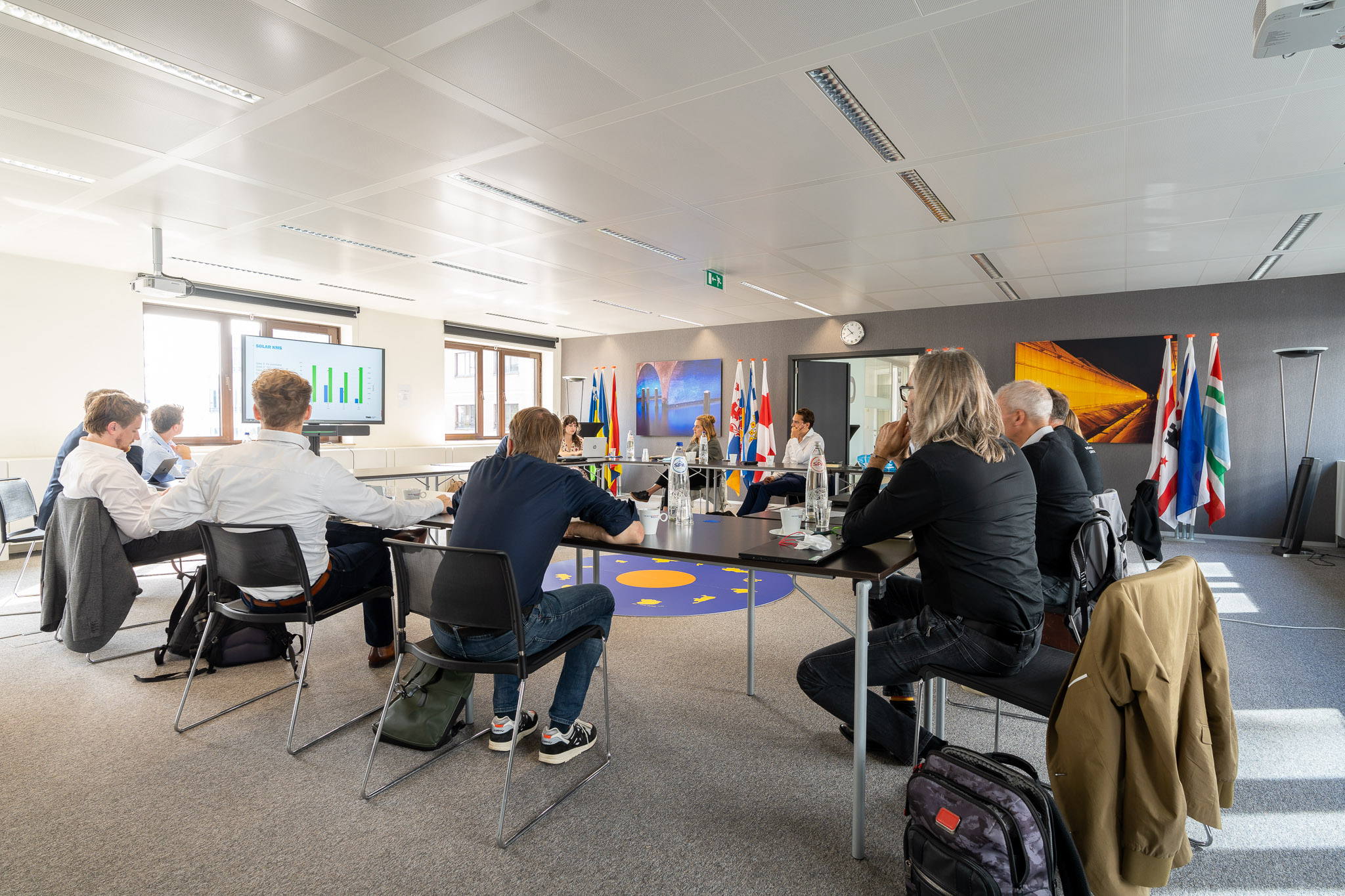ASOM: Alliance for Solar Mobility

With any new type of innovation making its way into society and everyday lives, it is important to make sure that current legislation is updated or new legislation is formed to ease the entry to market, stimulate its usage or protect product and consumer.
Activities of the Working Group
Within ASOM, a working group on Governmental Affairs meets once every two months to discuss the efforts by members of ASOM regarding policy development. This provides a perfect opportunity to identify the overlap between members of ASOM where forces can be combined.
Furthermore, a top-tier consultancy firm aids the working group by providing insights and updates on European-wide legislation related to VIPV, or possible opportunities for VIPV in legislation. They are also available for answering questions or more in-depth insights in Brussels and its institutions for our partners.
The working group aims to have an annual event to engage political stakeholders in the developments made by the members of ASOM. The last example of that was the successful event at the Residence of the Ambassador of the Netherlands in Belgium, at the end of 2021 (click here).

EU Solar Strategy
In May 2022, the European Commission published the EU Solar Strategy along with the RePowerEU plan. The EU Solar Strategy is a result of a public consultation earlier during year in which ASOM members also shared their insights. In this newly published strategy, solar mobility is highlighted as a “[..] a high potential to contribute to the reduction of emissions from the transport sector, by increasing the energy autonomy of EVs and partially replacing grid power with solar electricity produced on board”. Having this passage in a top-level EU strategy should pave the way on a national level for the stimulation and regulation of solar mobility.
The beginnings of an IPCEI on PV
Following the EU Solar Strategy, an IPCEI (Important Project of Common European Interest) focused on Photovoltaics (PV-IPCEI) has also gained a lot of momentum in the past few months (click here). An IPCEI can provide much more opportunities for government funding in a specific industry. Past IPCEIs concerned Hydrogen, Health and Microelectronics.
In the case of the PV-IPCEI, the photovoltaics sector in Europe of course is at the centre. Especially with the EU Solar Strategy in mind, such a project can provide a huge boost nationally and internationally for the development, research and production of Solar Mobility – which is something ASOM strives for through its activities. Seeing that several member states of the EU have already expressed their interest/support, we can only encourage all other national governments to get on board as well by showing them the innovative developments by members of ASOM.
The SEV-factor and Amendments on the Renewable Energy Directive
Currently, several amendments were submitted on a report on the Renewable Energy Directive by a few Members of European Parliament that recognise the importance of creating a precedent in European legislation for the market-entry of solar mobility. Because of that, they included the SEV-factor, developed by ASOM. To prevent greenwashing (e.g. adding a small PV array to a very power-hungry vehicle), the SEV factor aims to show the relationship between the energy generative power of the VIPV and the consumption of the vehicle, by dividing them. A small SEV-factor shows an unhealthy relationship between the two – the solar yield is small compared to the consumption of the vehicle. A higher SEV factor shows a higher degree of efficiency – the consumption is small compared to the solar yield.

Sustainable innovation investment list (The Netherlands)
Currently, the Government of The Netherlands has already adopted this SEV factor in an annual list which contains a wide array of sustainable investments that (small) businesses can do with a tax benefit. Business owners in The Netherlands can now benefit from a deduction of their taxable profits before tax of 36% of the purchase price of the vehicle (up to €100.000). See the entry here (in Dutch).
Apart from the multitude of achievements in 2021 and 2022 by members of the working group, we are currently only at the beginning of legislation around Solar Mobility. With the increasing amount of solar vehicles on public roads and the accelerating pace of innovation in this sector, support from all layers of governmental is vital.
If you are interested in joining the working group, please get in touch with the administration of ASOM through the website.
 June 22, 2022 –
June 22, 2022 –  8 min
8 min